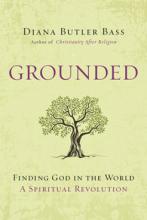Brian McLaren

STORIES ARE more than mere entertainment: They rest at the heart of who we are. They shape our understanding of the world and how we choose to live in it, both individually and collectively. They can sever us from one another or call us into deeper communion. This is the message at the center of two new books by Gareth Higgins (a Sojourners columnist) and Brian D. McLaren (a Sojourners contributing editor).
In The Seventh Story: Us, Them, and the End of Violence, Higgins and McLaren suggest that the violence and division that is part of our past and present are neither inevitable nor coincidental. They’re part and parcel of the stories we live by. The authors highlight six story types that are particularly pernicious and all too common: stories of domination, revenge, escapist isolationism, scapegoating, acquisition, and victimization.
Drawing on what theologian Walter Wink calls “the myth of redemptive violence,” Higgins looks at the role these story types play in justifying and perpetuating violence. He reminds us that, as was the case in his native Ireland, it is the work of peace and reconciliation—not more violence—that is truly redemptive.

Four mornings a week, in the tranquil, blushing hours of morning, Diana Butler Bass drives to a familiar walking trail along the Potomac River and embarks on a two-mile stroll.
Creeping sunlight peppers the wooded scene. And the babble of active water silences the jangle of daily life.
Some days she finds a comfortable bench along the river where she can journal. Other days, she observes creation.
For Bass, a learned nature connoisseur, ardent gardener, and noted religion academic, God does not merely exist inside reverent, adorned church spaces.
God also lives in the soil and exists in the elements.


I can’t count how many times I’ve heard people within mainline Christian churches note that, though they don’t embrace all of the theological positions of their evangelical sisters and brothers, they are impressed by their aptitude for organizing and affecting change on a large scale. At the same time, I see thousands converge at festivals like the Wild Goose festival in North Carolina, feeling both fed by the invigorating sense of community, but also frustrated to be leaving with the still unanswered question:
What do we do now?
The CANA Initiative, which is a joint collaboration of Brian McLaren, Stephanie Spellers, and Doug Pagitt, seeks to help answer that nagging question. Cana seeks to be the connective tissue that helps hold together communities of faith that share common priorities in addressing the pressing socioeconomic issues of our time.
From their website, “The CANA Initiative brings together innovative leaders from all streams of the faith to collaborate in the development of new ways of being Christian ... new ways of doing theology and living biblically, new understandings and practices of mission, new kinds of faith communities, new approaches to worship and spiritual formation, new integrations and conversations and convergences and dreams.”
Following is an audio interview I conducted with these three key voices in the CANA conversation. We talked about why CANA is needed now, more than ever, and what sort of transformation they hope to affect within the greater Christian body.

Christian conservatives who think Satan is using communism and Islam to bring down America can add a new “adversary” to the list: the Emergent Church movement.
A portion of the upcoming Values Voter Summit in Washington will stray from its usual focus on politics and consider the Emergent Church as one of three “channels the adversary is using to bring America down.” Art Ally, president of The Timothy Plan, a Florida-based mutual fund company devoted to “biblically responsible investing,” will lead the breakout session.
“Why would Satan use Communism? It’s a godless form of government,” said Ally. “Why would Satan use Islam? Same reason. It’s not a religion. It’s a movement to dominate the world under the guise of religion. The Emergent Church plays right into that by weakening further our church community.”

The recent “not guilty” verdict out of Sanford, FL, reflects the principle of the American legal system that if there is reasonable doubt, courts will err on the side of innocence. I dispute neither the principle nor the decision by the jury. But that doesn't leave me satisfied about the outcome.
Jesus said that true justice exceeds that of “the scribes and Pharisees” — and the same could be said of the prosecution and defense. Legal justice seeks only to assign guilt or innocence. Holistic justice works for the life, liberty, and well-being of all. And it especially works for reconciliation between the two Americas that can be identified by their reaction to the case.

Joe Scarborough said what a lot of Americans are thinking as they watch anti-American protests and embassy attacks in many places across the Muslim world.
"You know why they hate us? They hate us because of their religion, they hate us because of their culture, and they hate us because of peer pressure," Scarborough said on the MSNBC program "Mornin Joe" on Sept. 17.
"And you talk to any intelligence person, they will tell you that's the same thing, and all those people who think we're going to go over there and change them are just naive. ... They hate us because of waterboarding? No they don't. They hate us because they hate us. They hate us because of Obama's drone attacks? No they don't. They hate us because they hate us."
Now Joe would be the first to admit that “they hate us because they hate us” is ... somewhat lacking in analytical depth. But it’s even worse than that. It is a foolish step down an oil-slick slope into a deep, old rut that runs in a vicious, dangerous circle.
Our friends at #OccupyTheology caught up with Sojourners CEO Jim Wallis, Brian McLaren, Sojourners' Director of Mobilizing Lisa Sharon Harper and others at the Wild Goose Festival to talk about the Occupy movement, faith, politics and culture in a series of engaging videos.
 To the farmers who grow our food, the harvesters who pick it, the transporters who bring it to market, the grocers who present it, and the cooks who prepare it.
To the farmers who grow our food, the harvesters who pick it, the transporters who bring it to market, the grocers who present it, and the cooks who prepare it.
Here's the prayer we prayed at a nearby Publix grocery in the produce section on Friday:
A Prayer for Publix
Living God, you are the Creator of this beautiful and fertile world. You made sun, rain, soil, air, seed, and seasons. We praise you for the green of lettuce, the yellow of lemon, the orange of a tangerine, and especially for the bright red of a tomato. They are beautiful to our eyes, delicious to our taste buds, and nourishing to our bodies. We pray to the Lord, Lord, hear our prayer.
With all the angst about the economy, the deficit, and a looming government shut-down, I'm still concerned that we're treating symptoms rather than diagnosing the underlying disease.
I know something about this. I spent a week in the hospital last year having loads of tests done -- blood work, heart scans, stress tests, and sonograms. I was discharged without a diagnosis, merely with hopes that by treating the symptoms, whatever was wrong would go away. It didn't. It turned out my real problem was a tick-born disease, and once it was diagnosed, a ten-dollar prescription of antibiotics cured me. Without that ten-dollar prescription to treat the real problem, I could have experienced life-long disability.